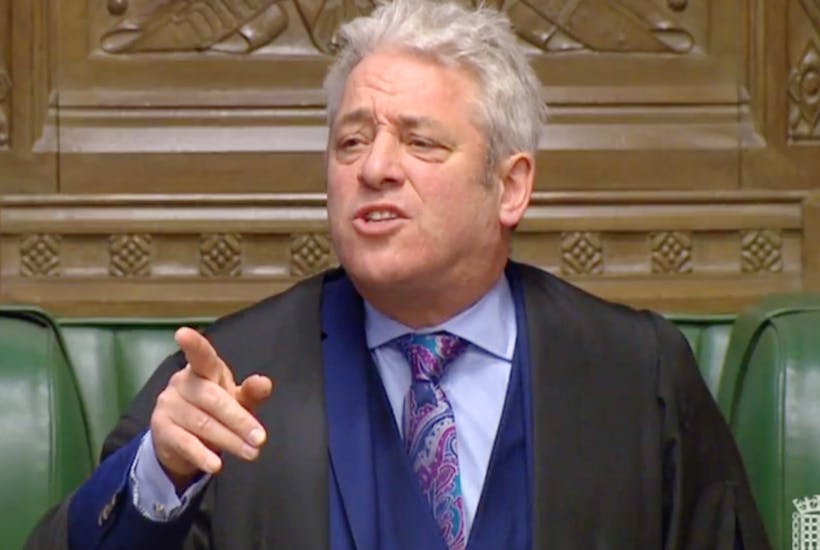Almost 400 years ago, in 1642, Speaker Lenthall famously declared ‘I have neither eyes to see nor tongue to speak in this place but as the House is pleased to direct me, whose servant I am here.’
That tradition died yesterday. Speaker Bercow took the powers of the House for himself, ruling that it could not make a decision about holding a third Meaningful Vote, and that he had instructed the Table Office not to accept such motions. This is extraordinary – while the Speaker has the power to rule motions and amendments in order, he has no power to prevent the tabling of them. Yet how can the parliamentary clerks refuse someone who is to all extents and purposes their boss?
His ruling had the effect of unusually uniting both defenders of the Government and defenders of the Commons yesterday. A respected former senior adviser who served in the Lib Dem Whips Office declared it ‘wrong’ and ‘procedurally incoherent’, an overextension of authority, and to the ‘potential long term detriments of Members’.

Britain’s best politics newsletters
You get two free articles each week when you sign up to The Spectator’s emails.
Already a subscriber? Log in






Comments
Join the debate for just £1 a month
Be part of the conversation with other Spectator readers by getting your first three months for £3.
UNLOCK ACCESS Just £1 a monthAlready a subscriber? Log in